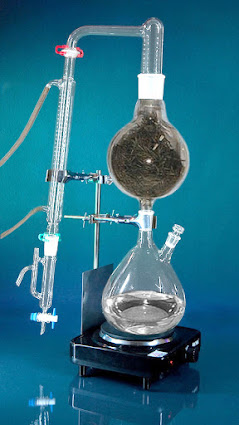How Does The Stainless Steel Construction Of An Essential Oil Distiller Impact The Quality Of The Distilled Oil?
Essential oils are the extracts of plants that are obtained through distillation and different methods. The essential oils are called essential because they entrap various essential components of nature and from the plant itself. The usage of essential oil varies depending upon the plant whose essential oil you are using. The different uses of essential oils are in the cosmetic industry, pharmaceutical preparations, household cleaning, and aromatherapy and in the perfume industry. The therapeutic use of essential oil is also very famous, and people grow plants and extract essential oils in their homes.
The essential oils obtained are 100% pure and concentrated if they are obtained by the correct process and with the help of the right equipment used. The stainless steel equipment plays an important role in the construction of essential oils, as it can impact the quality of oil produced; following are a few points that will help you to understand better how it affects the quality of essential oil obtained:
Corrosion-free:
The essential oil distiller stainless steel is anti-corrosive and free from any sort of chemical reaction from the plant material. It is highly useful for the products that are used in distillation which are mainly corrosive and acidic in nature, including essential oils, as it helps in preventing the leaching of metal compounds into the product, making it one of the finest essential oil products. This is the reason when stainless steel equipment is used in the distillation; the product formed at the end ensures integrity and high quality.
2. Reaction resistant:
The stainless steel is free from any sort of reaction during the process, which means that it doesn’t react with the chemicals essential oil and alter the product. Because, in most cases, the reaction does occur at the time of distillation, which alters the oil’s composition, this not only changes the composition of the essential oil but also changes the therapeutic and aromatic properties of the oil.
3. Easy cleaning:
Stainless steel is also famous for its easy cleaning and maintenance. The surface of it is non-porous and smooth, and it can be easily cleaned and washed. The essential oil distiller mainly involves the heating of the plant components that generally leaves residual stains over it, but as the surface of the distiller is smooth and non-porous, it gets easily cleaned and washed off. In this way, the distiller stays clean and also keeps the essential oil free from contaminants and dirt.
4. Durable:
Stainless steel is a durable material that can withstand high temperatures and repeated use without warping or deforming. It provides a sturdy and reliable construction for an essential oil distiller, ensuring the equipment remains in good condition over time. This durability also contributes to the consistency and quality of the distillation process.
5. Heat Distribution:
Stainless steel is known for its excellent heat conductivity, which allows for efficient and uniform heat distribution during the distillation process. This helps ensure that the plant material is heated evenly, promoting the release of essential oils without causing excessive heat damage or degradation.
6. Hygiene and Contamination Prevention:
Stainless steel is a hygienic material that is easy to sanitize and sterilize. This is particularly important when working with essential oils because any contaminants or impurities can affect the quality and purity of the final product. The smooth, non-porous surface of stainless steel prevents the growth of bacteria, molds, or other microorganisms that could contaminate the oil.
7. Longevity and Stability:
Stainless steel is a durable material that is resistant to wear, corrosion, and oxidation. It is less prone to deterioration over time compared to other materials, which can help maintain the stability and consistency of the distillation process. The stability of the distiller contributes to the overall quality of the distilled oil.
8. Odorless and Tasteless:
Stainless steel is odorless and tasteless, meaning it does not impart any unwanted flavors or aromas to the essential oils during the distillation process. This helps preserve the natural scent and properties of the oils without introducing any additional elements that could alter their characteristics.
9. Regulatory Compliance:
Stainless steel is often the preferred material for essential oil distillers due to its compliance with industry standards and regulations. It is widely accepted and approved for use in the food and pharmaceutical industries, which adds to the credibility and safety of the distilled oil.
It's important to note that while stainless steel construction offers numerous advantages, other factors, such as the design and engineering of the distiller, the expertise of the distiller, and the quality control measures in place, also play significant roles in determining the quality of the final distilled oil.




Comments
Post a Comment